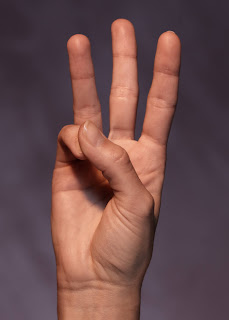Read this page to learn about things that will help your you or your child be safe and more independent.
Some of these devices help your child do everyday things.With them, your child can talk on the telephone or watch TV.
Other devices alert your child with a signal that she can see or feel. They may shake her awake in the morning, or flash lights in an emergency.
For telephones
- Amplified telephones
- For some children, voices on the telephone are just too quiet. But some can talk on the telephone if the voices are louder.
- The amplifier may be attached to a regular phone or can be built into a special phone. It may also be built into a handset, which you can attach to any other phone.
-
- A TTY lets your child use the telephone. TTY stands for telephone typewriter. It's also called a TDD, or telecommunications device for the deaf.
- Instead of saying words into the telephone, you type them onto the TTY's keyboard.
- A person with a TTY can call another person with a TTY. Or if your child wants to call someone who doesn't have a TTY, she can use her TTY to call the relay service. The relay operator then calls the person your child wants to talk to and tells them what your child typed on the TTY.
- People who don't have TTYs can use the relay service to call deaf people who do have TTYs.
- Learn more about TTYs by reading this TTY tipsheet.
- Personal amplifier for the TV.
- If your child's hearing aid has a DAI (direct audio input), she can have the sound sent straight to her hearing aid. Learn more about this on our hearing aids page.
- Closed captioning for the TV.
- Most TVs come with closed captioning devices.
- The captioning shows what people are saying as printed words across the top or bottom of the screen.
- Most TV shows have captioning.
- Captions let your child follow what goes on in TV shows.
- Captions can also help your child learn to read.
- Vibrating alarm clocks
- These shake your child's bed in the morning to wake her up.
- Flashing lights on the telephone
- These let your child know that the phone is ringing.
- Bright flashing lights (strobe lights)
- These let her know there is a fire or other alarm.
- C-Print (Computer assisted notetaking)
- The captionist types notes onto a laptop computer. The captionist is trained to type very fast and correctly.
- The words she types show up on a second computer or TV screen for the student to read. The student also gets a typed copy of the notes.
- For more information, read this tipsheet about C-Print.
- CART (Computer Assisted Real-time Transcription)
- A person with special training uses special equipment to type every word that is said in class.
- The student reads the words on a TV screen and gets a print-out after class.
- For more information, read this tipsheet about CART.
To keep in touch with others
- Text pagers
- Keep in touch with your child with a pager.
- Most pagers vibrate and have a screen for messages.
- You can send a message to the pager.
- The vibration will tell your child that he has a message. The screen will show your message.
- Read this page on assistive technology on the Listen-Up website.
- You can also check out the Deaf Resource Library to find out where to get these devices.


